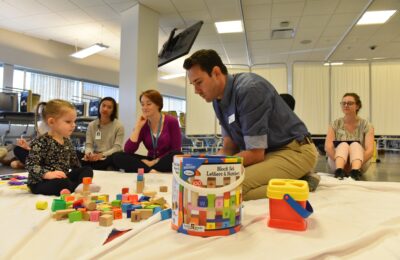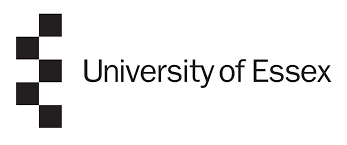
Psychoanalytic Studies (M16)
Join the UK’s first psychoanalytic studies course with deep roots in the British School of Psychoanalysis
This is the UK’s first psychoanalytic studies course with strong links in the British School of Psychoanalysis and the Tavistock model of infant and young child observation. The emphasis of this creative course is on learning from experience. You will be encouraged to use your own emotional responses and cultural knowledge, as well as the learnt theory, to help make sense of the ideas that you will be studying.
The course has a proud history of welcoming students from around the world and from a wide range of professional and personal backgrounds. It particularly values the diversity of lived experience that all students bring, including those related to culture, ethnicity, gender, sexuality, disability, and other aspects of identity, recognising how these perspectives enrich the use of psychoanalysis as a tool for understanding human experience and culture in its many forms
Students can achieve a Postgraduate Certificate or Postgraduate Diploma after one year, or undertake the full two years of study (including a dissertation in the second year) and graduate with a Master’s degree.
About this course
Alongside the in-depth study of the origin and development of psychoanalytic concepts you will learn through observation and explore the application of psychoanalysis to aspects of contemporary culture and society, including to the culture of psychoanalysis itself.
The course consists of three strands:
- young child and infant observation
- psychoanalytic theory
- psychoanalytic theory as a mode of enquiry into culture and society
Infant and young child observation
You will observe an infant or a young child (or both) at home or in a nursery setting and attend two weekly seminars led by experienced child and adolescent and adult psychoanalytic psychotherapists. Infant and young child observations provide rich opportunities for the detailed study of unconscious processes that shape a baby or young child’s personality as they develop within the context of family and/or nursery relationships, and in the context of the different communities.
Learning about and through the experience of observation is central to an initial psychoanalytic education and provides a context in which psychoanalytic ideas become connected to human experience, engaging students’ emotions as well as minds.
Please note that it is your responsibility, and an important aspect of the module learning aims and objectives, to arrange this observation. You will be given guidance and support with this task during seminars and tutorials.
Psychoanalytic theory
You will study the origin and development of fundamental concepts in psychoanalysis through Freud and Klein, as well as Bion, Winnicott and Meltzer. You will have the opportunity to develop an in-depth understanding of the theoretical developments achieved by contemporary post-Kleinian thinkers.
Senior psychoanalytic psychotherapists and analysts will use their clinical experience to bring psychoanalytic ideas and methods to life. The approach to learning is through the close study of the primary psychoanalytic texts and this will provide you with a substantial first-hand foundation for further psychoanalytic study and its broader applications.
Psychoanalytic theory as a mode of enquiry into culture and society
You will explore the application of psychoanalytic ideas to a broad range of cultural phenomena including art, drama, cultural and creative processes, film, narratives of self and music. You will look at how the application of psychoanalysis can foster a deeper understanding of social, political and cultural phenomena. Importantly, you will be encouraged to consider how you might apply this learning to your own area of expertise and interests.
Alongside examination of how a psychoanalytic perspective can enrich our understanding of the cultural wealth in diversity and difference, the module will also encourage the application of contemporary and historical psychoanalytic concepts to better understand and engage with the challenges to inclusive, anti-discriminatory learning about human development, including those associated with the culture of psychoanalysis itself.
Dissertation
Having completed a year long, in-depth study of theory, its application and learning through the experience of observation, you will complete a dissertation in the second year of study dedicated to an area of your interest.
Dissertation workshops begin in the first year of study and continue in the first term of the second year of study. In the workshop, you will work with academics and psychoanalytic practitioners and your colleagues to develop a dissertation proposal and initial writing. The dissertation is a 12,000 to 14,000 word project for which you will receive individual supervision. To proceed to the dissertation students must attend the weekly dissertation proposal seminar in the autumn term of the second year. They must write and submit a proposal for the dissertation to be approved before progression to the dissertation.
It is common that graduates of this course go on to publish their dissertations or adapt them to become published articles and books.
Here are some titles of successfully completed dissertations:
- The Maison Verte: a Transitional Space. An introduction to the work of Françoise Dolto
- The Psychodynamics of an Émigré Family Business: Intergenerational Creativity and Survival
- A Psychoanalytical Investigation into the Sense of Home in the Poetry of John Clare
- Beguiling the Hours: Psychoanalytic Perspectives on Boredom
- (Dis)integration in a Foreign Land: Psychoanalytic Explorations of Migration
- O My Days! A Psychoanalytic Approach to the Language of British Young Offenders in the 21st Century
- Peace and Terror: Psychoanalytic concepts of Psychosis and George Mitchell’s management of the Northern Ireland Peace Process
- The Beginning of the End of an Affair? An Exploration of Psychoanalytic and Psychiatric Models of the Mind in Two Cases of Psychosis
- The Death Instinct in the work of Ibsen (based on ‘Hedda Gabler’ and ‘The Master Builder’)
- David Hockney: the Recovery of the Lost Loved Object
Modules
Module 1: Infant/Young Child Observations 1
- Year one
- FHEQ level 7
- 20 credits
- Core module
- Module lead: Felicity Tyson
Module aims
The aims of the module are for you to:
- learn through the experience of undertaking observations and participating in seminar groups about the early development of emotional and relational experiences and unconscious processes.
- participate in a seminar group where you will be asked to consider the experiences of the child you are observing, reflect on and learn from your experience as an observer and pay close attention and thought to cultural difference. You will consider the diverse cultural experiences of the child, family, fellow students and yourself as an observer.
- enhance your receptivity to the emotional development of infants/young children
- develop a capacity to describe in fine detail the behaviour and interactions of the baby (or young child) as they interact with others in their family and/or nursery environments
- equip you to make links between the use of the psychoanalytic observational method and other modules on the course
Module assessment
You must submit an infant observation portfolio, comprising three observations of 1,500 words each, with brief introductory and linking paragraphs of 750 words.
Module 2: Psychoanalytic Theory 1
- Year one
- FHEQ level 7
- 20 credits
- Core module
- Module lead: Tara Blake-Harbord
Module aims
The aims of the module are to:
- gain a detailed, in-depth chronological knowledge of the key works of psychoanalytic literature from Freud (term one), Klein (term two)
- give you opportunities for both didactic and experiential learning in relation to psychoanalytic theory
- gain an in-depth knowledge of fundamental psychoanalytic concepts including their origin and development and their value for contemporary thinking, both clinical and theoretical
- develop critical thinking skills in relation to the concepts under discussion
- have the foundations to be able to trace the development of classical theory into the contemporary era
- equip you with the critical and analytic skills necessary to understand and elaborate upon different perspectives within the field of psychoanalysis
Module assessment
You must submit a 3,500 word psychoanalytic theory paper, choosing from a selection of titles provided.
Module 3: Applications 1
- Year one
- FHEQ level 7
- 20 credits
- Core module
- Module lead: Felicity Tyson
Module aims
The aims of the module are to:
- develop an understanding of how psychoanalytic concepts can be applied to non-clinical settings, social, political and cultural phenomena
- develop an understanding the relevance of theory to various applications of psychoanalysis
Module assessment
You must submit a 3,500 word applications paper.
Module 4: Infant and Young Child Observation 2
- Year two
- FHEQ level 7
- 20 credits
- Core module
- Module lead: Felicity Tyson
Module Aims
The aims of the module are to build on the learning about observation. You will:
- continue to learn directly from experience about human development and interactions and the deeper dynamics within the student’s observational setting and the settings of other students in your seminar group
- continue to develop understanding of the psychoanalytic observational method through experience of observing an infant/young child/institution and seminar discussion
- continue to enhance receptivity to the emotional development of infants/young children within a range of settings, taking into account issues of sameness and difference between observer and observed family, and developing the capacity to describe their importance and impact within the observational narrative
- consolidate skills and capacities as an observer of interactions in the students chosen setting and of themselves in the role of observer
- make links between the use of the psychoanalytic observational method and other modules on the course
Module Assessment
You must submit an infant observation paper of 3,500 words, plus ancillary material of up to 1,000 words.
Module 5: Psychoanalytic Theory 2
- Year one
- FHEQ level 7
- 20 credits
- Core module
- Module lead: Tara Blake-Habord
Module aims
The aims of this module are to:
- be able to trace the development of classical theory into the contemporary era focusing on the developments within the British School of Psychoanalysis
- be equipped with the critical and analytic skills necessary to understand and elaborate upon different perspectives within the field of psychoanalysis
- understand the relevance of theory to various applications of psychoanalysis
- be able to apply psychoanalytic theory to other modules on the course
Module assessment
Students are required to submit a 3,500 word psychoanalytic theory paper, choosing from a selection of titles provided.
Module 6: Applications 2
- Year one
- FHEQ level 7
- 20 credits
- Core module
- Module lead: Felicity Tyson
Module aims
The aims of the module are to:
- have acquired a detailed knowledge of the field of psychoanalytic studies.
- develop an advanced understanding of how psychoanalytic concepts can be applied to non-clinical settings for example in music, poetry and autobiography
- develop new approaches to psychoanalytic questions in an interdisciplinary framework i.e. to identify what social scientists and critical theorists might contribute to psychoanalytic discussion as well as what psychoanalysis might have to offer
Module assessment
You must submit a 3,500 word applications paper.
Module 7: Dissertation
- Year two
- FHEQ level 7
- 60 credits
- Core module
- Module leads: Michael Rustin and Tara Blake-Harbord
Module aims
The aims of the module are to:
- facilitate the production of a well written, well-structured dissertation on a subject of the student’s choice which reflects learning from different parts of the course,
- engage students in contributing to a workshop where they support the formulation and development of their own and other students’ dissertation proposals (dissertation proposal seminars)
- foster an advanced capacity for independent learning and academic writing
Module assessment
You must submit a 14,000 word dissertation.
Who is this course for?
This is a rewarding course for anyone interested in learning about psychoanalytic ideas and their application to culture, society, the arts, politics, and literature. You may do this course out of a general interest in learning more about psychoanalysis and applying it to your own areas of interest and professional expertise, be considering future clinical training or already be a practising clinician who wants to inform your professional practice.
This course is a good option for those unsure about whether they would like to work with children or adults, before deciding to study on our Psychodynamic Psychotherapy or Child and Adolescent Psychoanalytic Psychotherapy courses.
We have welcomed students from a wide-range of personal and professional background since the early 2000s including students with backgrounds in social care, architecture, law, medicine, the arts and journalism. Many have taken this course to gain a substantial and wide-ranging introduction to psychoanalysis and its applications.
Course details
To be eligible for this course you must have a degree or other qualification of equivalent level.
Tuition fees
Home (2026/27)
£9,580 per year
International (2026/27)
£19,160 per year
If you decide to continue attending observation seminars beyond the autumn term of the second year, you will be charged a termly fee for the additional observation seminars.
Annual fee increases
Tuition fees are charged for each year of your course. If your course is longer than one year, the fees may be subject to annual inflationary increases. For more information on tuition fee changes, including paying for tuition fees, please refer to our tuition fee guidance.
Funding
Student loans
If you are studying a Master’s or Doctoral level course, you may be eligible for a postgraduate loan from the UK government. Please check our student loans guidance for eligible courses and criteria.
Funding for current students
We offer several funding options to support current students who need financial assistance during their studies. Please refer to our financial support guidance for more information.
Assessment
The course is assessed with the submission of written essays for each module. You will also submit, in the first year, a portfolio of observations for the infant observation module.
Please note: You can achieve a Postgraduate Certificate or Postgraduate Diploma after one year, or undertake the full two years of study (including a dissertation in the second year) and graduate with a Master’s degree.
To be awarded, the following assessments and modules must be achieved:
Postgraduate Certificate (Year one)
- Psychoanalytic Theory 1
- Observation 1
- Applications 1
Postgraduate Diploma
All modules and assessments required for the postgraduate certificate plus:
- Psychoanalytic Theory 2
- Observation 2
- Applications 2
Masters
All modules and assessments required for the postgraduate diploma and the submission of a final dissertation.
Attendance
Teaching for this course is delivered in-person at the Tavistock Centre, London.
In the first year, you will need to attend on:
- Tuesdays from 2 to 7.30pm – please note there will also be five dissertation proposal seminars at 12pm in the spring term which you will be expected to attend
- Wednesdays from 3.15 to 6.45pm
In the second year, you will need to attend:
- the dissertation workshop and observation seminars in the autumn term from 2 to 7.15pm
- up to six hours of dissertation supervision during the spring and summer terms (this can be online) – you may also continue with your observation seminars
Please note that you will also need to set aside between two and four hours each week for observation of an infant or young child, and the writing up of those observations, for the duration of the course. It is your responsibility to arrange this observation, but you will be given guidance and support with this task as needed during seminars and in tutorials. You will need to prepare to set aside time weekly for reading and note taking.
Many graduates of this course have:
- gone on to further clinical training as adult or child and adolescent psychoanalytic psychotherapists, or other psychological therapeutic trainings (about 60% follow this path) – including our Psychodynamic Psychotherapy or Child and adolescent psychoanalytic psychotherapy courses.
- used the learning to develop their existing clinical profession, often as psychiatrists, clinical psychologists, counsellors
- gone on to doctoral level research in related fields of psychoanalysis and its clinical and cultural applications
Application support and deadlines
If you have questions about our postgraduate courses, admissions process, or the specifics of your application, you can book a one-to-one online meeting with a member of our admissions team.
There are a number of important application deadlines associated with our postgraduate courses, however we encourage you to apply as early as possible, as spaces on our courses are limited and can be competitive.
Applications for this course are expected to close on Tuesday 30 June 2026.
Why study with us?
This world-renowned course has been running for over 20 years and will equip you with an in-depth understanding of psychoanalytic theory and its potential applications to other fields.
It will enable you to make links between theory and your own experience of watching unconscious processes unfold by undertaking an observation of a baby or young child. Crucially, it will offer you the opportunity to think about how an understanding of emotional states can contribute to our understanding of culture and society.
You will benefit from being taught by senior clinicians as well as academics who have developed particular interest in the applications of psychoanalysis to culture, politics and society. You will receive guidance and teaching from child and adolescent psychoanalytic psychotherapists and psychoanalysts with expertise in infant and young child observation, research and extensive, current clinical experience working with children, adults and families.
The emphasis of this creative course is on learning from experience, and you will be encouraged to use your own emotional responses, as well as theory, to help you make sense of the ideas that you will be studying. You will have a generous amount of time with your tutors, most of whom are practicing clinicians.
Testimonials
Course facilitators
Validations
This course is validated by the University of Essex.
Apply now
Start your application for the September 2026 cohort of this course.
Please note: you may see the M16 course also referred to as PAMATP005 in communications from our application system.
Recommended courses
Explore courses to study beforehand
-
 Graduate diploma Eligible for Student Visa
Graduate diploma Eligible for Student Visa
Emotional Care of Babies, Children, Young People and Families (EC1)
-
 Professional certificate
Professional certificate 
Psychodynamic Reflective Practice in Mental Health (D65)
Explore courses to study next
-
 Master’s degree Eligible for Student Visa
Master’s degree Eligible for Student Visa
Perinatal, Child, Adolescent and Family Work: a Psychoanalytic Observational Approach (M7, London)
-
 Master’s degree Eligible for Student Visa
Master’s degree Eligible for Student Visa
Psychodynamic Psychotherapy (M58/BM58, London)
-
 Professional doctorate
Professional doctorate 
Child and Adolescent Psychoanalytic Psychotherapy DPsych (M80)
-
 Master’s degree Eligible for Student Visa
Master’s degree Eligible for Student Visa
Psychological Therapies with Children, Young People and Families (M34)
